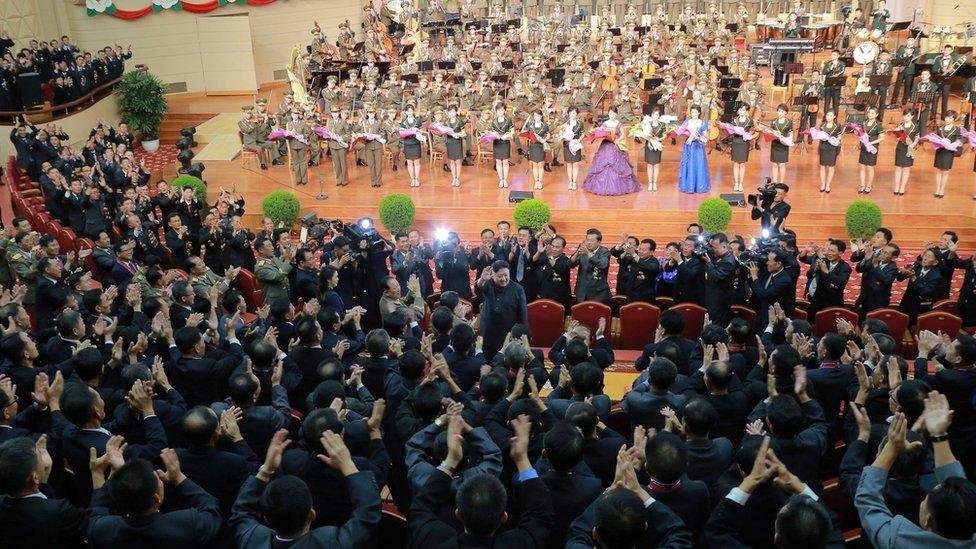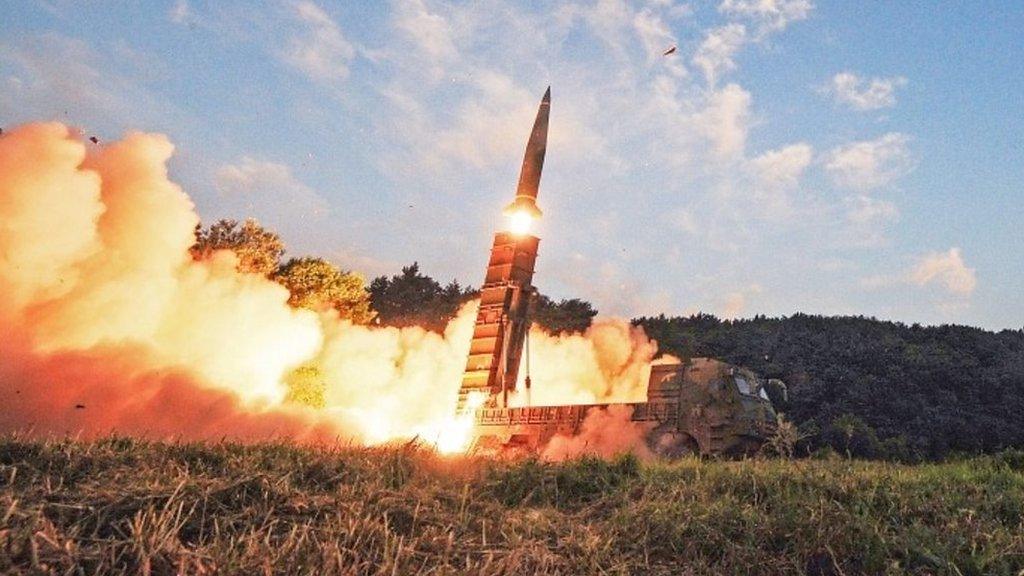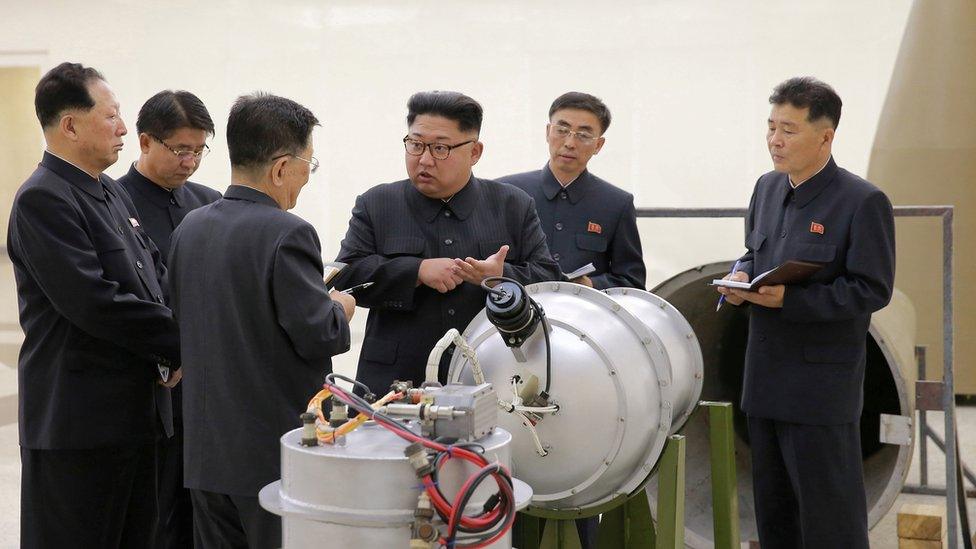North Korea: Nato chief says global response needed
- Published

Kim Jong-un attended a celebration for the country's nuclear scientists and engineers after its latest test
Nato's general secretary, Jens Stoltenberg, has said North Korea's nuclear programme "is a global threat and requires a global response".
"That of course also includes Nato," he told the BBC's Andrew Marr Show.
But he refused to say whether an attack on the US overseas territory of Guam would trigger the military alliance's collective defence pact.
Article 5 of the Nato treaty says that an attack against one member is considered an attack against all.
Guam, an island territory of the US in the Pacific Ocean, is a key military outpost and has been the subject of heated rhetoric from Pyongyang.
"I will not speculate about whether Article 5 will be applied in such a situation," Mr Stoltenberg said.
"What I will say is that we are now totally focused on how can we contribute to a peaceful solution of the conflict and press North Korea to stop its nuclear missile programmes."
He called on North Korea to stop its development of nuclear weapons, saying it was a blatant violation of UN security resolutions and "a threat to international peace and stability".
Nato's Jens Stoltenberg: N Korea response "of course includes Nato"
Nato has condemned Pyongyang's tests but, as a military alliance, is not directly involved in the related diplomacy.
The comments from Mr Stoltenberg come as members of the UN Security Council differ on how to deal with the crisis following North Korea's latest missile test over Japan.
The US has drafted a resolution to increase sanctions and cut off some of the last remaining sources of income for Pyongyang, as well as imports of oil.
Russia, however, has expressed scepticism about more sanctions, which have had little effect so far.
How could war with North Korea unfold?
Appearing separately on the same programme as Mr Stoltenberg, British defence minister Michael Fallon said the US would have a right to ask other members of the United Nations to join any defence of its territory - but that should be avoided.
"What we have to avoid at all cost is the spilling over in to any kind of military conflict," he said.
"So we're working flat out at the United Nations to get a better resolution there, to enforce the existing sanctions. We are looking at sanctions across the European Union and of course we are trying to persuade China to keep its neighbour in check."
Analysts believe a military conflict with North Korea would be devastating for both Pyongyang and South Korea; and some say that North Korean leader Kim Jong-un is seeking a nuclear deterrent rather than planning for open war.
- Published8 September 2017

- Published9 September 2017

- Published21 April 2020
